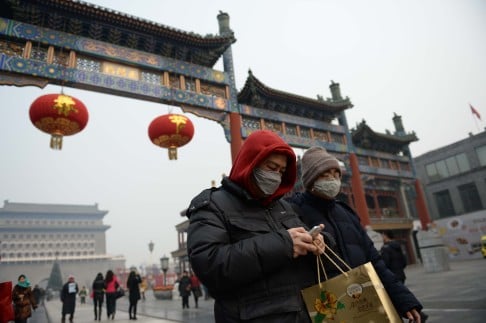As I've pointed out from time to time: China is a major polluter, but also now a leader in green technologies. That included being largest maker and user of wind and solar.
Kamilia Lahrichi
Kamilia Lahrichi says now China has made environmental concerns a priority, it has quickly become a trendsetter in the global warming fight
Amid all the discussions at the UN about climate change efforts, Beijing has emerged as a trendsetter that has made great strides towards sustainability. The Asian giant is still the planet's largest carbon emitter, but it now stands out among its peers by offering a blueprint for environmentally friendly urbanisation and low-carbon growth. In particular, its sustainable cities - like Tianjin Eco-city, the world's largest - are innovative solutions to rapid industrialisation.
Beijing was congratulated at the UN for its groundbreaking efforts. Werner Obermeyer, deputy executive director of the World Health Organisation, acknowledged China's significant efforts to redesign transport routes, relocate polluting industries and set up more green spaces.
The reality is that the catastrophic consequences of global warming have stirred a greater environmental consciousness in the Chinese leadership
China's determination to cut air pollution seems to be paying off: a 2015 London School of Economics report found that Beijing was close to meeting its climate goals five years ahead of schedule. While the US is grappling with meeting its commitment to curb greenhouse gases, China's carbon emissions will peak by 2025 instead of 2030, as initially agreed. Its emissions will then decrease, the study found.
The reality is that the catastrophic consequences of global warming have stirred a greater environmental consciousness in the Chinese leadership. President Xi Jinping's speeches about his country's efforts to combat climate change were a leitmotiv during his first tour of the US as well as during his first speech as head of state to the UN General Assembly last month.
Air pollution is still a problem in China, but Beijing's efforts are beginning to pay off. Photo: AFPXi announced he would launch a cap-and-trade programme to lower carbon emissions by 2017. This national limit forces companies to buy credits to pollute. He also gave away US$3.1 billion to help developing nations tackle climate change. In addition, Xi declared, along with US President Barack Obama, specific plans to cut the number of coal-fired power plants
China's strategy is more than just a longing for an environmentally friendly planet: authorities have taken practical steps to contribute to global climate security.
Beijing has cut the number of cars in several cities to ease congestion while offering discounts on electric and hybrid vehicles to encourage the use of renewable and sustainable transport, and to show that a country of 1.3 billion people can be environmentally sustainable. This way, China is proving it can play by international rules and make a significant difference to global warming.
Kamilia Lahrichi is a foreign correspondent and recipient of the 2014 United Nations Foundation's "Global Issues" Journalism Fellowship. kamilialahrichi.com [1]
Sent from my iPhone
